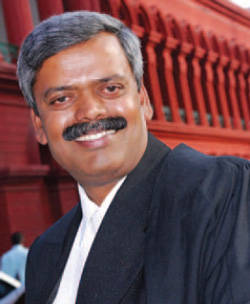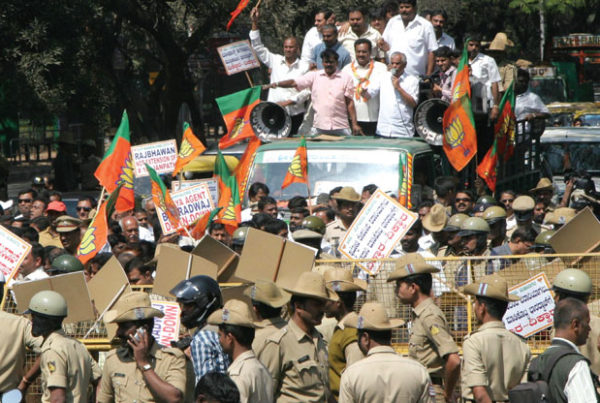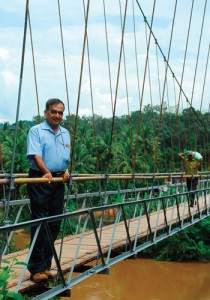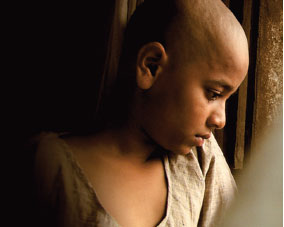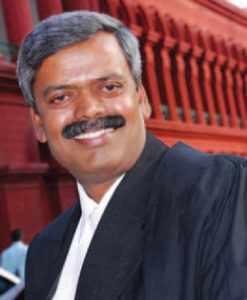 Legal bond: Mohan Kumar at the Karnataka High Court
Legal bond: Mohan Kumar at the Karnataka High CourtAT 46 , advocate Mohan Kumar, believes three things. First, caste identities have to be accepted, they are a reality to be dealt with every single day — “Perhaps I can forget my caste but others around me are never going to forget.”
Second, though conversions to a different religion do not erase caste identities, dalits must consider converting to Buddhism. “To fight right wing Hindutva’s usurping of Buddhism into the Hindu religious fold, dalits must necessarily convert to Buddhism,” he says.
Third, the Bahujan Samaj Party is a necessity of the times and it is the only vehicle of independent assertion left for Dalits today.
It should come as no surprise that Mohan is a member of the Karnataka state unit of the Bahujan Samaj Party
Surrounded by the examples of IAS officers and police inspectors and stirred by a father who worked in the postal department, he breezed through school and college. He was confident, popular and a consistent topper. However, in his MBA class, he was mocked and sidelined by classmates from affluent upper caste homes. “I was suddenly awake to the fact that I was a dalit,” recounts Mohan.
After an initial consultancy, there were no jobs for the young MBA graduate. Dreams of a managerial post came crashing down when a recruiting agent at an employment exchange told him that most private sector companies preferred Brahmins or other upper caste candidates. “He called me back to check on my caste identity. I had left that column blank, naively assuming that qualifications mattered more than caste did. The agent’s question was the culmination of a difficult two years,” he says.
It took Mohan years to recover and enroll in a law course. Today he is an advocate in the Karnataka High Court. “Though the number of dalit students in colleges has increased, discrimination continues,” he says.
An affluent and indulgent father of two school-going children, he is clear that the law and the BSP remain central to his fight. “I studied law so that I would be better equipped in my fight against caste oppression,” he says.
—
This article was originally published in Tehelka, a leading independent news magazine in India, known for its investigative journalism.
